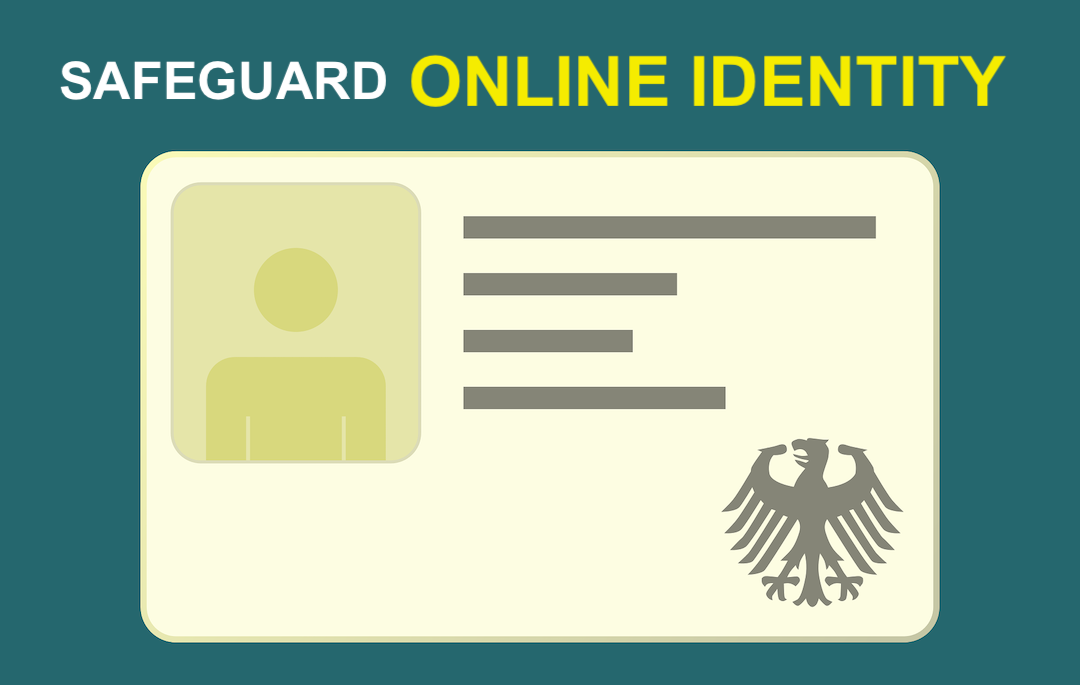
Your digital identity is used to prevent fraud, especially if you’re logging into a bank account. However, there are unethical individuals out there who sell your information to third parties or push unwanted marketing on you. Additionally, cybercriminals can gain access to your online credentials to hack into your social media or bank accounts.
That’s why it’s crucial that you use various methods to protect your online identity. If you’re not sure where to begin, then the five tips mentioned in this post will help you safeguard your digital identity to give you peace of mind whenever you’re on the internet.
1. Use Strong Passwords
One of the easiest ways cybercriminals can steal your information is by deciphering your passwords. People who use simple passwords with limited characters are more susceptible to getting hacked.
When creating passwords for your accounts, make sure they are at least 8 to 12 characters long and consist of at least one special character and a number. Consider using a password generator so you can create passwords that are difficult to crack.
Furthermore, don’t save your passwords on your devices to automatically log you into your accounts. If a criminal steals your device, they’ll have free access to all your accounts if you save passwords. Instead, opt to log into all your online platforms manually.
2. Install the Right Software
There are a variety of software you can install on your devices that help protect your digital identity. Here are the most common software people use to safeguard their online accounts.
i. Virtual Private Networks (VPNs)
A virtual private network is software that creates a secure connection between your device and the internet. This type of software develops a point-to-point tunnel that encrypts all your digital information and masks your IP address.
The purpose of a VPN is to prevent companies like your internet service provider and other third-party platforms from seeing your browsing activity. Additionally, a VPN allows you to bypass geo-blocked websites or firewalls.
ii. Antivirus Software
An antivirus is software designed to detect, prevent, and remove malicious viruses from a computer device.
Malicious viruses can prevent your computer from working. For example, junkware infects your computer when you’re installing an application, which makes the system run slower than usual. Other types of viruses, like trojans, bypass your security settings to disable certain programs on your device.
Installing an antivirus on your smartphone or computer will prevent viruses from attacking your digital systems or hackers from stealing information.
iii. Firewalls
A firewall is your computer’s first line of defense when you’re browsing the web. It monitors and filters network traffic based on your computer's security protocols. This line of defense decides whether to block or allow certain traffic through your network.
Your device’s firewall acts as a barrier to shield your computer from malicious attacks and unwanted network traffic. This digital defense is important if you’re using your device on a public WIFI network because it can stop unauthorized access while you’re using the internet.
3. Monitor Your Accounts
Another way to increase your identity defense is to continuously monitor your accounts for suspicious activity. Certain platforms provide details on when you’ve changed your passwords or accessed the account from another device.
If you notice suspicious activity on your social media or bank accounts, you can report it. You’ll then get a set of instructions to safeguard your account so that hackers can’t access it and steal your information.
4. Be Aware of Phishing Attacks
Phishing scams can be extremely sneaky, so it’s not always easy to detect when you’re being duped. In this type of scam, cybercriminals use emails or SMS texts that look legitimate to convince their victims to give up personal information. The goal is to steal passwords and banking or credit card details.
Make sure you have a phishing filter on your computer to remove suspicious emails from your main inbox. You can also install a phishing app on your smartphone to prevent attacks coming through SMS or other chat platforms.
5. Keep Your Devices Updated
Cybercriminals are always developing new ways to steal your digital identity. One way to fight against new viruses and malware is to keep your devices updated at all times. This includes your antivirus software, apps, and operating systems to prevent a breach from a newly developed virus or scam.
Final Thoughts
Protecting your digital identity can prevent you from becoming a victim of cyber attacks. The tips mentioned in this article will help you safeguard your personal information online whenever you browse the web.



Comments (0)
No comment